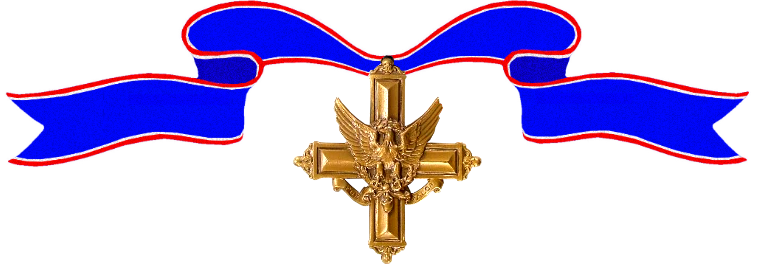After serving in the Marine Corps during World War II, Charles Warner returned to the private sector as a civilian, until enlisting in the Army after he was commissioned upon graduation from the ROTC at Mississippi State College.

–
Cemetery:
Awards Received
-

Distinguished Service Cross
-
Distinguished Service Cross
Service:
United States ArmyRank:
Second Lieutenant (Field Artillery)Batallion:
158th Field Artillery BattalionDivision:
45th Infantry DivisionAction Date:
June 15, 1952
Headquarters, EIGHTH U.S. Army, Korea, General Orders No. 597 (October 4, 1952)The President of the United States of America, under the provisions of the Act of Congress approved July 9, 1918, takes pride in presenting the Distinguished Service Cross (Posthumously) to Second Lieutenant (Field Artillery) Charles Lawrence Warner (ASN: 0-64284), United States Army, for extraordinary heroism in connection with military operations against an armed enemy of the United Nations while serving with serving as a Forward Observer of the 158th Field Artillery Battalion, 45th Infantry Division. Second Lieutenant Warner distinguished himself by extraordinary heroism in action against enemy aggressor forces in the vicinity of Tumyong-dong, Korea, late on the night of 15 June 1952. On that date, Lieutenant Warner was with an infantry company occupying a strategically located hill. Suddenly the company was subjected to an intense artillery barrage followed by a fanatical attack, by a numerically superior hostile force. Despite the fact that he had been wounded early in the action, Lieutenant Warner remained at his post, adjusting artillery fire which inflicted heavy casualties on the enemy. With wave after wave of screaming enemy troops assaulting the friendly position, Lieutenant Warner’s radio was destroyed by enemy fire, but he continued to call in fire directions by using the company’s radio and relaying his adjustments through the infantry battalion. Wounded again, he still refused evacuation, but remained throughout the night in a shallow trench, relaying every request for supporting fire. Early the following morning it was discovered that he had received fourteen wounds, and he was ordered to a rear area for medical treatment. As he was being placed on a stretcher for evacuation, a direct hit by an enemy mortar killed him instantly. The extraordinary heroism displayed by Second Lieutenant Warner on this occasion reflects the greatest credit on himself and is in keeping with the high traditions of the military service.

